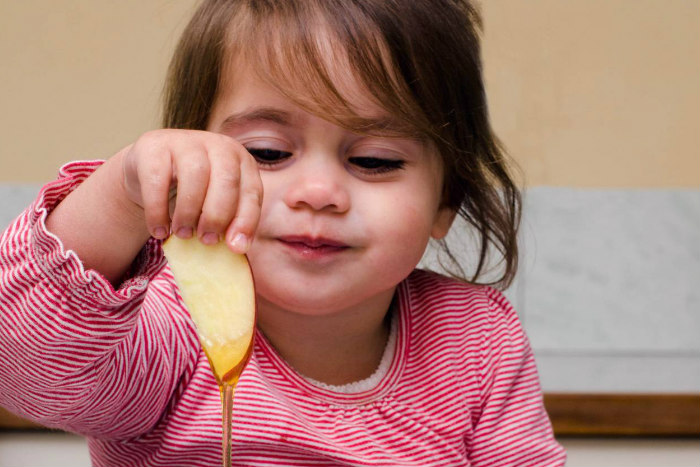
The Yamim Nora-im, the High Holidays, are a time of personal reflection and repentance, when Jews throughout the world examine the past year and envision the year that is yet to be. The New Year is an opportunity to reaffirm the Jewish tradition’s longstanding commitment to tikkun olam (repair of the world).
The Talmud teaches that there are four different New Years: one for the trees, one for the months, one for tithing animals, and one for the years. The New Year for the years, Rosh HaShanah, also marks the anniversary of the world’s creation.
In addition to the themes of repentance, self-reflection, and prayer that we traditionally consider during the High Holidays, we also are given an opportunity to acknowledge and celebrate God’s work in creating the world. As we contemplate our actions, both good and bad, during the past year, we also turn our thoughts to the world around us, and our role as the stewards of creation.
Here are some things you can do during the High Holidays to highlight this responsibility to take care of God’s creation.
Celebrate Creation
Rosh HaShanah marks the anniversary of the world’s creation, and in addition to the themes of repentance, self-reflection, and prayer that traditionally permeate the season, it can also can be a time to mark and celebrate God’s work in creating the world. From the pressing global crisis of climate change to advocacy on clean water and food justice, we are heirs to a tradition of stewardship and partnership in the ongoing work of Creation that goes back to Genesis. Consider the following efforts:
- Volunteer to clean up litter in your neighborhood or public parks or organize a neighborhood-wide clean-up day.
- Start a scrap-paper pile in your home or office to re-use or recycle wasted paper.
- Start a compost pile.
- Conduct an energy audit to calculate home energy consumption and the size of your “carbon footprint.”
- Make a donation to an environmental cause or to support green energy to compensate for the amount of carbon you generate.
- Get involved in Jewish environmental efforts, including advocacy and activism.
Reflect on Diversity, Equity, and Inclusion
Part of reflecting is taking stock of how we’ve acted toward others. The High Holiday season is the perfect time to reflect on how you've focused on diversity, equity, and inclusion in the past year – to celebrate successes, identify missteps, and commit to betterment in the new year. Read "Ask Yourself These 'Audaciously Hospitable' Questions During Elul," then start determining your own answers to the questions, whether individually or with your Jewish community. If you are a member of the clergy, a Jewish professional, or a lay leader, check out "Learning About Diversity, Equity, and Inclusion is an Act of T'shuvah" for additional insight.
To learn more about concept of diversity, equity, and inclusion - as well as the concept of "audacious hospitality," coined by the Union for Reform Judaism - and how you can apply it all in your Jewish community, download the URJ's Audacious Hospitality toolkit.
Reframe Tzom Gedalia
Tzom Gedalia, the Fast of Gedalia, is a minor fast day that occurs on the third day of the Hebrew month of Tishrei between Rosh HaShanah and Yom Kippur. Here are a few ways you can reframe this fast to have meaning in today’s world:
- Dedicate this personal day of fasting (from sunrise to sundown) to the millions of people around the world who face hunger and starvation on a daily basis.
- End your fast day by volunteering at a local food pantry, soup kitchen, Meals on Wheels program, or any organization that works to combat the challenges of hunger.
- Donate to a hunger awareness/advocacy organization the amount of money you would have spent to feed yourself and your family during the day.
Explore Your Own Eating Habits
Make a “new year’s resolution” to commit to making healthy and sustainable food choices in the coming year through education, programming, and advocacy. Start with Rosh HaShanah dinner: Learn about and prepare a meal that is organic, vegan, and/or includes products that are fair trade (learn more about what fair trade means) or purchased from local farmers as a way of supporting best environmental practices. You can also find a number of vegetarian and vegan Jewish recipes right here on ReformJudaism.org.
Hold a Social Justice Tashlich Ceremony
The custom of takes place on Rosh HaShanah afternoon. During this ritual, Jews go to a body of water and symbolically “cast their sins” from the previous year into the flowing water. Traditionally bread crumbs or food are used to symbolize the sins – but instead, you can use pebbles or stones found near the water to remember those who face daily hunger, for whom even the crumbs might mean the difference between life and death.
As you participate in this ritual and begin the atonement process, think of ways you can act in the coming year to help those who are in need of food. Or, shake the dust from your clothing to perform the ritual of “casting away your sins” to reflect on environmental issues - then learn more about Reform Judaism and environmental issues.
How will you try to better the world this Rosh HaShanah? Connect with us on Facebook or Twitter to let us know and to share your own ideas.
Explore Jewish Life and Get Inspired
Subscribe for Emails